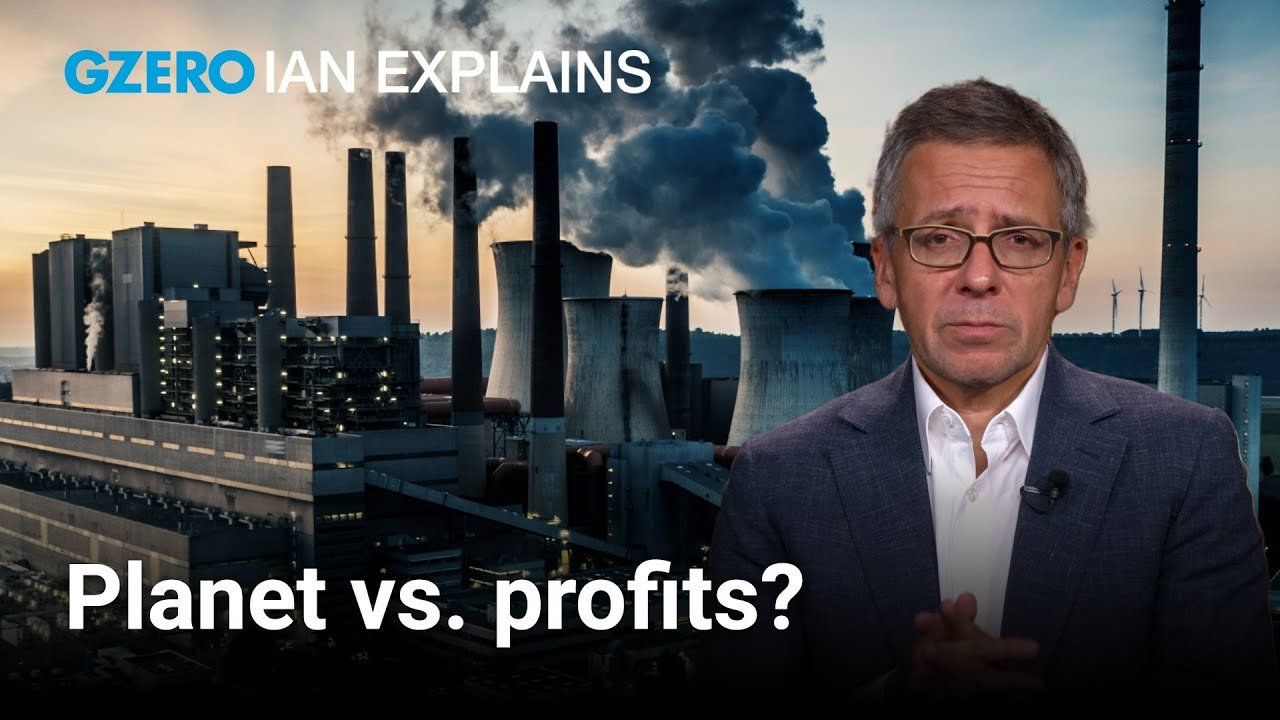Ian Explains
Ian Explains: Can we save the planet without hurting the economy?

Ian Explains: Can we save the planet without hurting the economy? | GZERO Media

“How much are we willing to sacrifice to stop climate change?”
That’s how the conversation is usually framed, that fighting climate change requires some sort of trade-off: save the planet vs. maintain living standards, reduce carbon emissions vs. increase profits, lower global temperatures vs. lift more people out of poverty.
On Ian Explains, Ian Bremmer argues that this framing is actually a false choice. In the last decade, the underlying technology and economics of decarbonization have improved so much, we no longer need to choose between investing in climate mitigation and economic growth. In fact, clean energy technology like solar panels, wind turbines, and advanced battery storage have become, in many ways, more affordable than fossil fuels.
But despite the clear advantages of decarbonization, powerful interests like Big Oil, fossil fuel workers, and petrostates seem determined to cling to the status quo and slow down the green transition. Can competing interests put aside their differences and short-term goals to come up with a climate policy that works for everyone?
Europe can no longer rely on the US and must step up to defend its own future, Ian Bremmer reports from the Munich Security Conference.
The Supreme Court has struck down President Trump’s use of the national emergency clause to impose sweeping tariffs around the world. In this Quick Take, Ian Bremmer explains why this ruling was predictable and why it’s a major setback for Trump’s trade strategy.
“For India, AI stands for all inclusive,” reads the billboard outside this week’s AI Impact Summit in New Delhi organized by the Indian government, the first major gathering on the subject in the Global South.